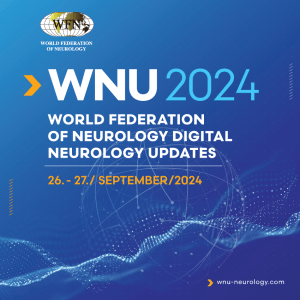
The World Congress in Geriatric Medicine ‘Back to the Roots’ conference, was held in August 2019 in Newcastle, New South Wales, Australia. Over 300 clinicians from Geriatric Medicine, Old Age Psychiatry, Neurology and other specialties gathered for five days of learning and networking. Participants were drawn predominantly from all over Australia but also New Zealand as well as some international attendees.
The conference welcomed 25 UK-based and 25 international speakers who together with local New South Wales faculty covered topics centering on helping older people stay as healthy as possible for as long as possible. This has never been more essential or relevant as our global population ages and experiences the problems of multiple pathologies painted on the canvas of increasing frailty.
To take a quick world view, the average lifespan in the UK is now over 80 years and those living longer are an increasing proportion of our population. Japan, meanwhile, is considered ‘super-aged’ with over 20% of their population over the age of 65; a proportion expected to rise to 1 in 2.5 people by 2050.
If you look at the Australian population data, the average male born today can expect to live to around 80 while the average female can expect to reach nearly 85. People ask ‘do older people really want to get to that age?’ I think if you ask the average grandparent, their answer is ‘yes’, but what they really want is to be healthy [at that age].
UK Geriatrician Dr Peter Fletcher
On the face of it these observations are good news. However, the increasing challenge is not just the decline in health in later years but also the increase in the number of people working into old age. Hence the need to preserve, maintain and protect our health, function and well-being for as long as possible as we age.
The UK Office for National Statistics recently published a paper examining the interplay between working and caring responsibilities, noting that ‘as our population ages, ‘there will be an increased need for informal care and so a need for older people to stay in the workforce longer.’ They suggest that ‘2 million adults in the UK are receiving informal care,’ with nearly three in five carers in England and Wales aged 50 years and over and one fifth aged 50 to 69 years, providing informal care to a value of £59.5 billion per year. This is ‘the equivalent of just over 4 million adult social care workers working every week of the year at their median weekly hours.’
The need to remain healthy for longer not only impacts our own quality of life as we age, but our ability to support ourselves and our families. It also has a wider impact on our social systems and national economies, as well as our healthcare systems. Meanwhile the proportion of the population made up of those younger, working age and for example employed as carers, is diminishing.
The conference, covered by the Channel 9 local TV news, as a whole was defined by three characteristics. Firstly, it covered a phenomenal range of topics within a single programme, giving the busy clinician an enormous amount of continuing professional development in a single conference. With the essential theme of ‘healthy for longer’ in mind, topics included specific conditions such as stroke diagnosis and management, dementia, frailty and sarcopenia while there was a whole day on Parkinson’s disease and related disorders. Medical challenges such as falls, continence problems and polypharmacy were also covered as were de-prescribing and managing the older patient undergoing surgery.
Secondly, each contribution was crafted to provide the latest evidence where available and the very best consensus thinking where it was not, both enhanced and in turn validated by the extensive question and answer sessions that followed each contribution. Comprehensive analysis of practical patient management sat alongside reviews of the most recent evidence-based medicine including detailed presentations around how to deliver high quality community geriatrics, and the importance of the comprehensive geriatric assessment.
Finally, it had immense face validity to the front-line clinician in geriatric medicine (and other specialties too) and was of enormous hands-on practical value to those managing our older patients. This is true at the bedside, but the best news is that the same principles apply in the clinic, day hospital and community. With 82% of attendees coming from geriatric medicine and 73% of these already specialists, participants were left ideally placed to put into practice much of the information shared on the latest in evidence-based care and optimal service delivery.
Dr Chandrasekhara Padmakumar, Conference Lead and Consultant Geriatrician & Clinical Leader Aged Care at John Hunter Hospital in Newcastle, NSW, Australia, said: ‘The knowledge that will be gained will definitely improve and upskill the staff working… that’s how we’re hoping that this [conference] will translate into patient care .’
Clinicians attending this conference strive every day to keep our older patients fit and healthy and living well within their own homes, families and wider communities. This conference has done much to help participants achieve those goals.

